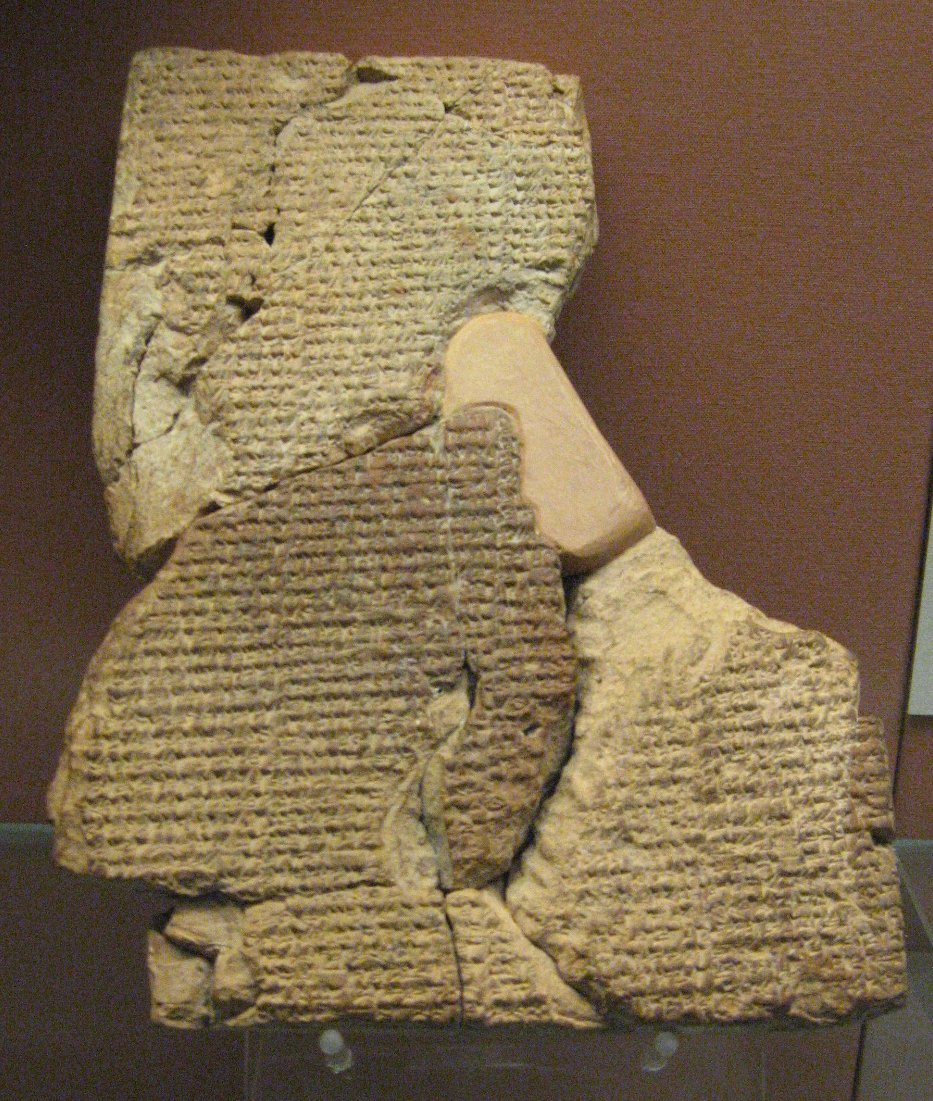You might also consult this;
List of Mesopotamian deities

en.wikipedia.org
~~~~~~~~~~~~~~~
Sumer-Akkad-Babylon culture/civilizations also have as a main account of anything like a global flood what is related in;
The Epic of Gilgamesh
The Epic of Gilgamesh is, perhaps, the oldest written story on Earth. It comes to us from Ancient Sumeria, and was originally written on 12 clay tablets in cunieform script. It is about the adventures of the historical King of Uruk (somewhere between 2750 and 2500 BCE).
...
...........
The
Epic of Gilgamesh (
/ˈɡɪlɡəmɛʃ/)
[2] is an
epic poem from ancient
Mesopotamia, regarded as the earliest surviving notable literature and the second oldest religious text, after the
Pyramid Texts. The literary history of
Gilgamesh begins with five
Sumerian poems about Bilgamesh (Sumerian for "Gilgamesh"), king of
Uruk, dating from the
Third Dynasty of Ur (c. 2100 BC).
[1] These independent stories were later used as source material for a combined epic in
Akkadian. The first surviving version of this combined epic, known as the "Old Babylonian" version, dates to the 18th century BC and is titled after its
incipit,
Shūtur eli sharrī ("Surpassing All Other Kings"). Only a few
tablets of it have survived. The later Standard Babylonian version compiled by
Sîn-lēqi-unninni dates from the 13th to the 10th centuries BC and bears the incipit
Sha naqba īmuru[note 1] ("He who Saw the Abyss", in modern terms: "He who Sees the Unknown"). Approximately two-thirds of this longer, twelve-tablet version have been recovered. Some of the best copies were discovered in the
library ruins of the 7th-century BC
Assyrian king Ashurbanipal.
...
In the second half of the epic, distress over Enkidu's death causes Gilgamesh to undertake a long and perilous journey to discover the secret of eternal life. He eventually learns that "Life, which you look for, you will never find. For when the gods created man, they let death be his share, and life withheld in their own hands".
[5][6] Nevertheless, because of his great building projects, his account of
Siduri's advice, and what the immortal man
Utnapishtim told him about
the Great Flood, Gilgamesh's fame survived well after his death with expanding interest in the
Gilgamesh story which has been translated into many languages and is featured
in works of popular fiction.
...

en.wikipedia.org
~~~~~~~~~~~
Utnapishtim or
Utanapishtim (
Akkadian: 𒌓𒍣) is a character in ancient
Mesopotamian mythology. He is tasked by the god
Enki (Ea) to create a giant ship to be called
Preserver of Life in preparation of a giant flood that would wipe out all life. The character appears in the
Epic of Gilgamesh.[1]

en.wikipedia.org
....
The
Gilgamesh flood myth is a
flood myth in the
Epic of Gilgamesh. Many scholars believe that the flood myth was added to Tablet XI in the "standard version" of the Gilgamesh Epic by an editor who used the flood story from the
Epic of Atrahasis.
[1] A short reference to the flood myth is also present in the much older Sumerian Gilgamesh poems, from which the later Babylonian versions drew much of their inspiration and subject matter.
...

en.wikipedia.org




